Heating, ventilation, and air conditioning are an essential part of our daily lives. With a recent rise in new technology, skilled technicians are in demand now more than ever to help install more advanced systems and repair the old ones.
The wages reflect this demand, with the national average salary for HVAC techs coming in at over $47,000.
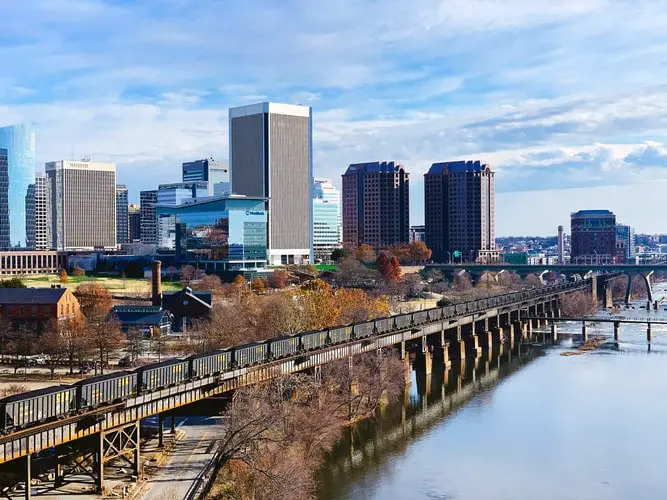
Want to Learn HVAC in the State of Virginia?
Keep reading for information about licensing, certification, and exam processes that you will need to undergo to complete your HVAC training.
How to Become an HVAC Technician in Virginia
In Virginia, you need to be certified before you can work in the HVAC industry. Typically, there are three levels of licensing that you can achieve if you are pursuing an HVAC career: Journeyman, Master, and the Contractor license. In addition, prior approval of the state government is required before you can go through the process.
In case you are moving to Virginia with a certification, you must produce a copy of your certification. As a result, you will be able to go through the examination phase for that specific license level.
You have to become eligible for licensing by fulfilling the following requirements.
Contractor License Requirements
To get a contractor license, these requirements must be satisfied.
- Application submission to DPOR
- Must have an insurance
- Eight-hour course completion
- General, Law and Advanced examination must be passed
- For specific trade, specialty test must be cleared
- Provide proof of five years for Class A, three years for Class B, and a two-year experience for Class Contractors
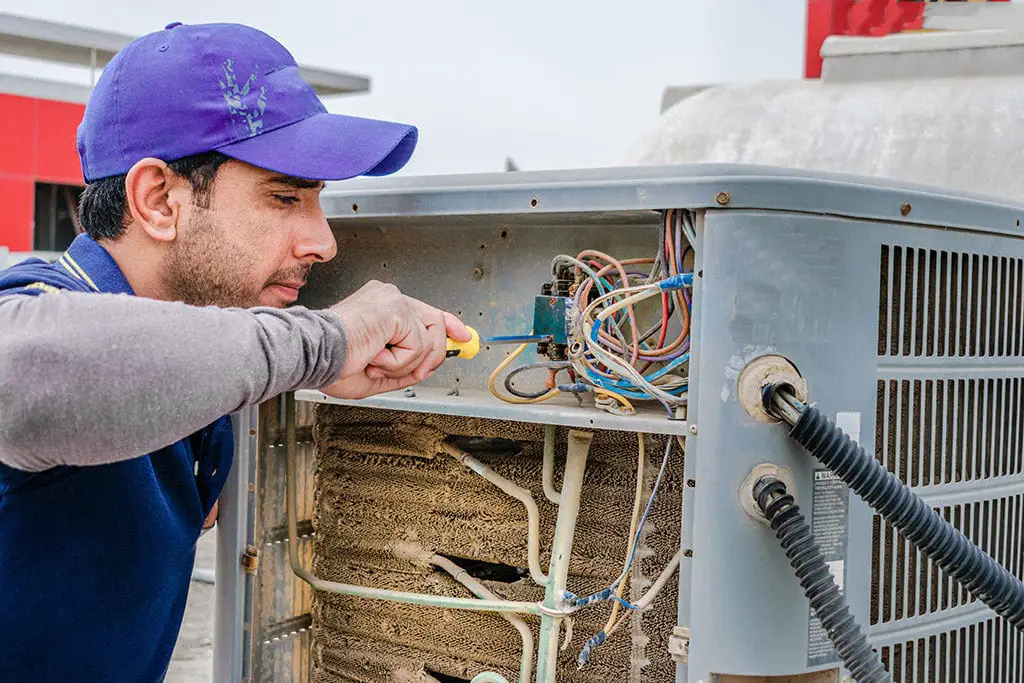
Why is Virginia a Good Place to Work as an HVAC Technician?
The world, as we know it, is moving towards a modernized society as a whole. With ground-breaking inventions and research, the HVAC industry is one of the leading industries to date. The industry is in need of knowledgeable and skilled professionals that can deal with modern technology. With the increasing demand for HVAC professionals, there is a lot of good news for them in Virginia.
Here are some major aspects that make Virginia an amazing place to work as an HVAC technician.
Hourly Salary Rates
Virginia is one of those states which pay quite handsomely for your services if you are an HVAC professional. Hourly salary rates are quite high when compared to that of other states.
Employment Opportunities
With the increasing demand for HVAC professionals, Virginia attracts quite a lot of individuals with an HVAC degree. According to various surveys, these employment opportunities will increase rapidly with the high demand for HVAC professionals.
Quality Training Programs
Living in Virginia means you can also benefit from quality classroom education as well as practical experience. Accredited and well-reputed educational institutes and licensed employers promise you a bright future.
HVAC Licensing Requirements for Virginia
In the Virginia HVAC biz, there are three levels of licensing you can attain: journeyman, master, and contractor. There are three different classes of contractor licenses you can apply and test for: A, B, and C. A contractor’s license is mandatory any time a project has a budget over $1,000.
Pre-approval from the board is mandatory before you go through any licensing exam process. If you are moving from another state and are already a licensed journeyman or master you can sit for the same level by simply providing a copy of that license or card. Outlined below are the requirements you will have to meet to be eligible for each license:
Journeyman Licensing Requirements
To obtain a journeyman license, you must meet one of the following requirements:
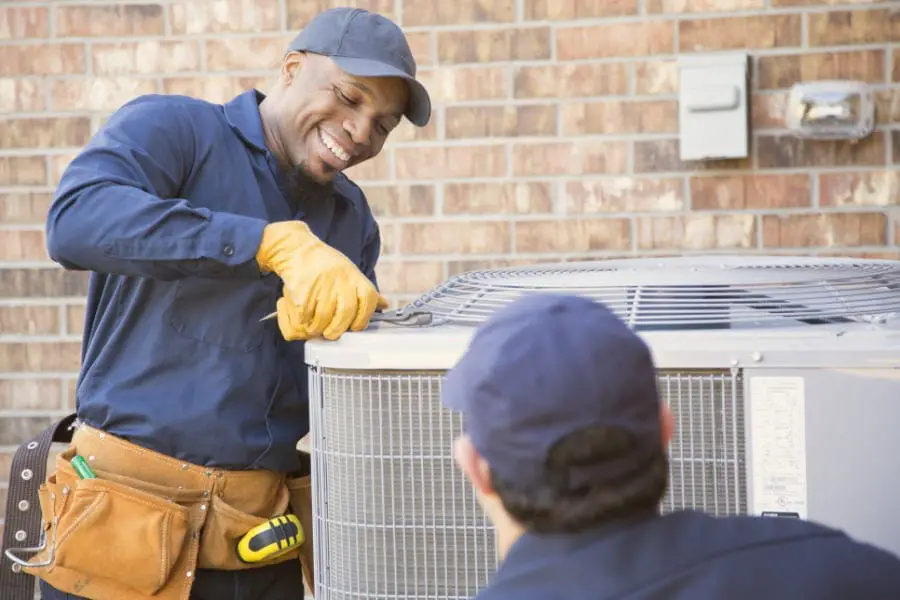
- Two years of trade experience and a degree or certification proving you have completed a two-year trade, tech, or community college program
- Four years of experience in the trade and 240 hours of vocational training
- Five years of trade experience and 160 hours of vocational training
- Six years of trade experience and 80 hours of vocational training
- A bachelor’s degree in an engineering related curriculum and 1 year of hands-on experience
- Ten years of experience verified by affidavits from employers or others in the field
Master Licensing Requirements
To be licensed as a master, you need either one year of experience as an in-state licensed journeyman, or ten years of experience verified by affidavits from employers or others in the field.
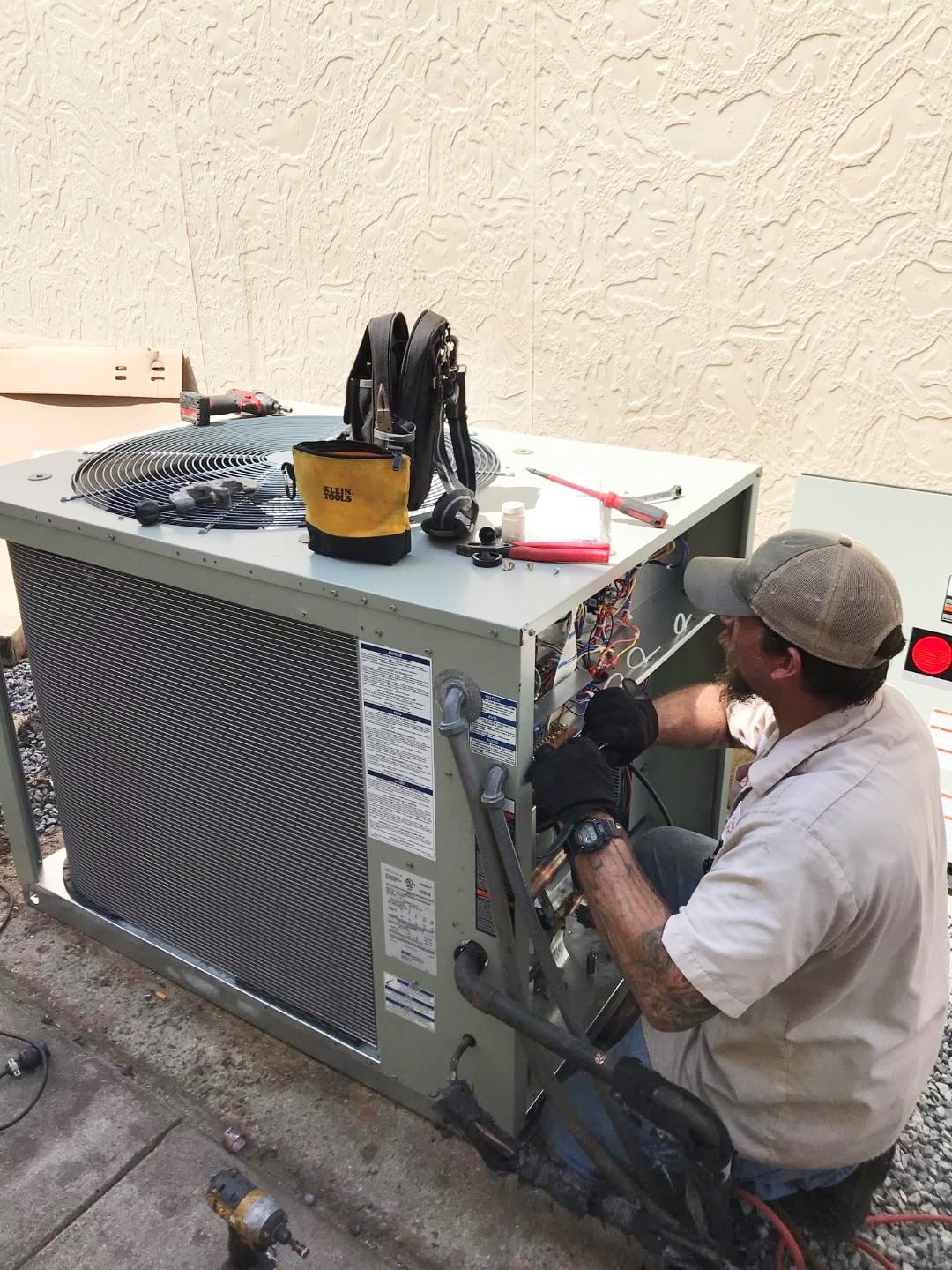
Class A Contractor Licensing Requirements
The Class A contractor licensing allows HVAC contractors to work unlimitedly on any project, no matter how large. They have no monetary cap restricting them.
- Complete an eight-hour pre-licensing course
- Submit an application to the state
- Minimum 5 years of experience, proof of that experience, and a net worth of > $45,000.
- Pass specialty exams required for the specific trade
- Pass the General, Advanced, and Law exams
- Carry insurance
- Pay $385 application fee
Class B Contractor Licensing Requirements
Class B contractors can work on projects up to $120,000. They are not allowed to accumulate total projects beyond $750,000 annually. They must also meet these requirements:
- Complete an eight-hour pre-licensing course
- Submit an application to the state
- Minimum 3 years of experience, proof of that experience, and a net worth of > $15,000.
- Pass specialty exams required for the specific trade
- Pass the General, Advanced, and Law exams
- Carry insurance
- Pay $370 application fee
Class C Contractor Licensing Requirements
Class C contractors can work on projects costing no greater than $10,000. They cannot take on projects worth a cumulative total beyond $150,000 annually.
- Complete an eight-hour pre-licensing course
- Submit an application to the state
- Minimum 2 years of experience
- Pass specialty exams required for the specific trade
- Pass the General, Advanced, and Law exams
- Pay $235 application fee
How to Apply
To apply for licensure, you need to contact the Virginia Department of Professional and Occupational Regulation State Board for Contractors @1-804-367-8511.
Examination Process
After your application has been approved and you have been deemed eligible for your desired licensure, you must schedule and pass your exams. For the journeyman and master HVAC exams there are two exam parts. One is the traditional trade portion of the exam and the other is the statutory and regulatory exam. Here are some more details that can help you schedule and prepare for your license exam.
Virginia HVAC Exam Master + Journeyman
This section of the exam is the same for both levels of licensing. It consists of 85 questions within a 210-minute time limit. There is $100 fee (Journeyman) or $125 fee (Masters). You will need a 60% for a Journeyman license and a 64% for masters.
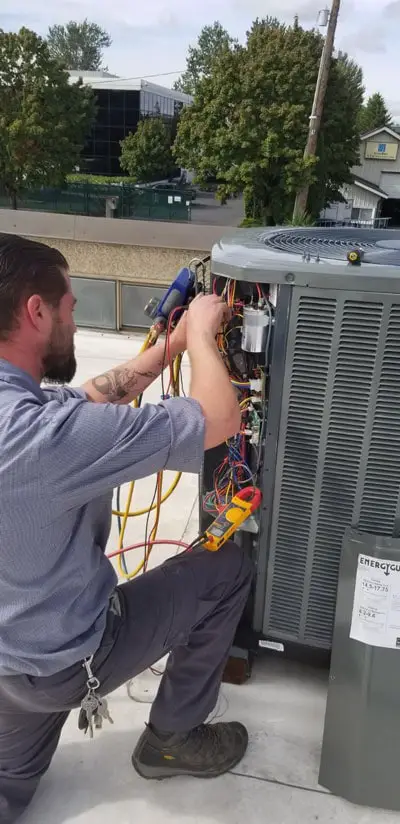
Topics include:
● Warm air heating
● Ventilation
● Air conditioning
● Ducts
● Chimneys
● Flues
● Vents
● Piping
● Combustion air
● Insulation
● Refrigerants
● Standards for conduct
● Standards for practice
● Fire safety
● Licensure procedures and more.
You can schedule your exam with PSI @ (1-800-733-9267)
In addition, there are at least two further exams to take, or three, if you want the Class A license. For these two sections, the exam fee is a combined $72, and $85 if you are taking all 3 portions. You must also have passed the specialty exam for your field. The exams can be scheduled through PSI.
Virginia Portion of the Contractor Exam A + B
- 24 Questions within 48-minute time limit
- 75% to pass
- Topics include: regulations, board rules, codes, and transaction recovery fund
General Portion Exam A + B
- 50 questions within a 100-minute time limit
- 70% to pass
- Topics include business organization, estimation, bidding, project and contract management, risk management, general safety, state labor laws, fiscal responsibility, taxes, and lien laws.
Advanced Class A Exam
- 24 questions within a 60-minute time limit
- 71% to pass
- Topics include: business organization, estimation, bidding, project and contract management, risk management, general safety, state labor laws, fiscal responsibility, taxes, and lien laws
Class C
While there is no exam to become a Class C contractor you will still need to apply and take the specialty exam in your field.
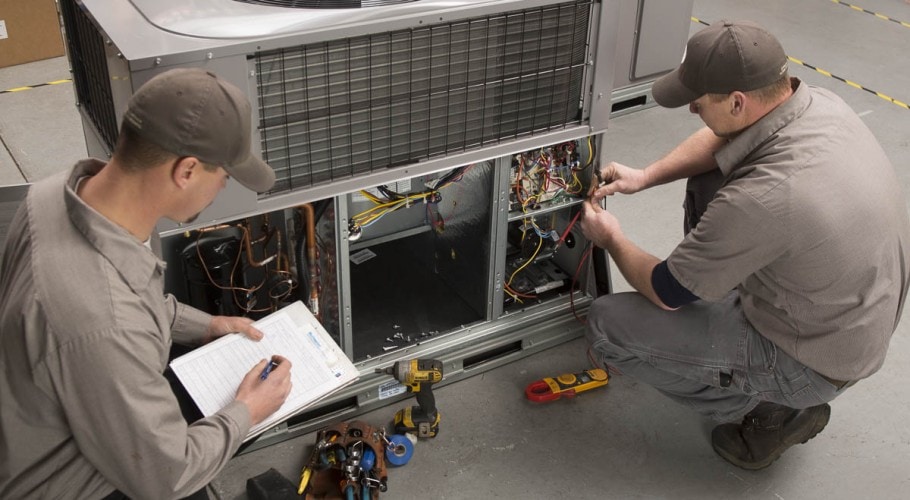
Job Outlook and Salary for HVAC in Virginia
Job prospects and salary packages seem quite promising for HVAC technicians in Virginia. According to various reports, employment opportunities for HVAC are on the rise in the state. It is expected that job prospects will increase quite rapidly in the next ten years.
Talking about salary packages, the average hourly salary rate for an HVAC technician in Virginia is $22.77. However, entry-level pay scales might vary between $13.88 to an impressive $31.99. Overall, you can expect an average salary of $47,370.
How Much Do HVAC Techs Make in Virginia?
There is no doubt that Virginia pays quite well to HVAC professionals. But how much? Let’s discuss some facts and figures based on the job position for HVAC in the state.
Entry-Level
For entry-level positions, individuals with working experience of one year or less can earn $20.81 per hour. This is quite a decent hourly salary rate when compared with other states.
Mid-Level
If you have practical experience of more than five years, the hourly salary rates might lie between $20.60 and $25.61.
Master-Level
Master level is, of course, the highest paying of the lot but demands quite a lot of experience. With the practical experience of ten years or more, hourly salary rates can be as high as $30.41.
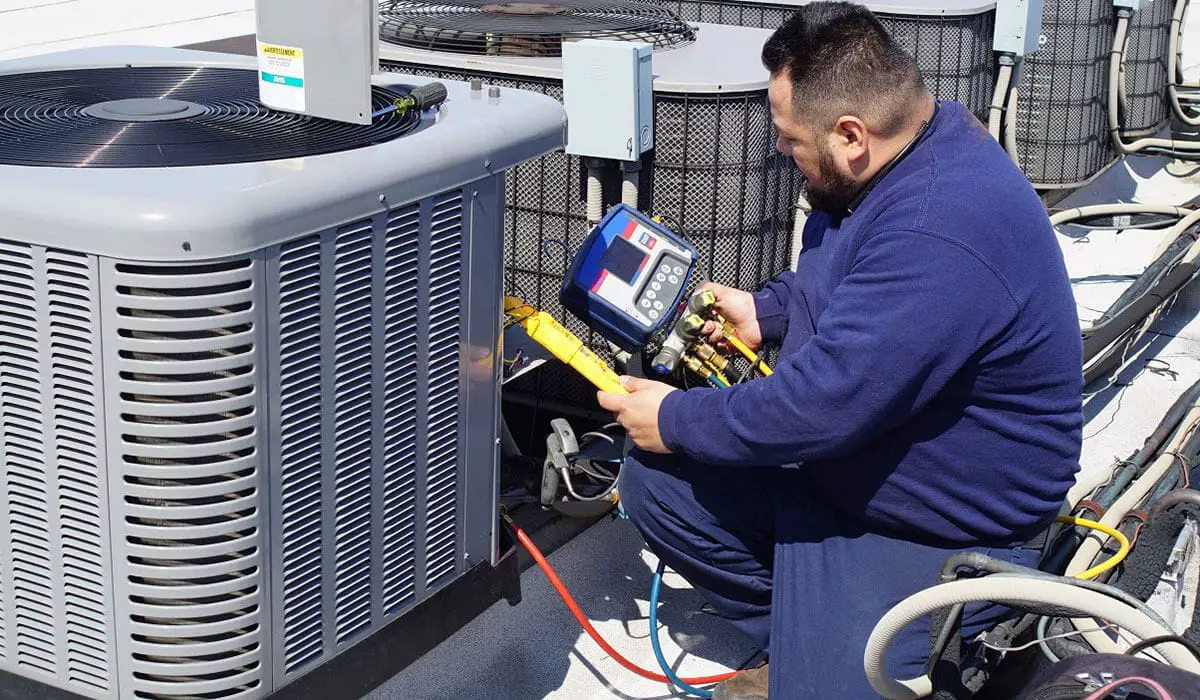
Conclusion
If you are looking to get higher paying work in the state of Virginia as an HVAC tech, getting your journeyman or master level license is an excellent idea. In the growing HVAC job market, it will make you a hot commodity or help you move up within your current company.
Becoming an HVAC Class A, B, or C contactor is definitely well worth the paperwork and exam process. It can allow you to become your own boss and work on bigger projects as you move up the scale from C to A.
People Also Ask
People seldom ask a lot of questions regarding the HVAC industry in the United States. These vary with various states and their specific rules and regulations for the field of HVAC. Since we are talking about Virginia, here are some frequently asked questions by most people.
The Department of Professional and Occupational Regulation is responsible for licensing and certification of people with an HVAC degree. For achieving any license, you must fulfill the requirements and pass specific exams conducted by this regulatory board. Only after passing the various examinations will you be eligible for a license.
An apprenticeship license is quite crucial when it comes to pursuing a career in the HVAC industry. It is proof that you have practical knowledge and skill to work in the industry. Typically, HVAC apprenticeship licenses can be achieved by working under a licensed HVAC contractor. This is possible by enrolling in a well-reputed educational institute.
Getting certified or licensed in Virginia is divided into three basic levels: Journeyman, Master, and Contractor. For each and every license level, there are various requirements that need to be fulfilled. Once you fulfill those requirements, you will be eligible to get your license and vice versa.
HVAC professionals are high in demand throughout the United States, according to various surveys. To deal with modern technology and equipment, there is a high demand for skilled professionals. Trained HVAC individuals are required to work in factories, and other HVAC service providers are needed to offer services to local residents.
Virginia hosts some of the most well-reputed and accredited institutions for pursuing an HVAC career. These institutes are equipped with the necessary equipment, staff, and environment to make sure you have a bright HVAC career. Typically, any well-reputed institute in Virginia will cost you around $5000 to $10,000 for an HVAC Training Program.
Once you are certified, there always comes a time where you must renew your license. In Virginia, you are required to renew your license once every two years, and $90 must be submitted before your claim can be processed. In case you fail to renew within 30 days of the expiration date, a $140 reinstatement fee must be deposited.
